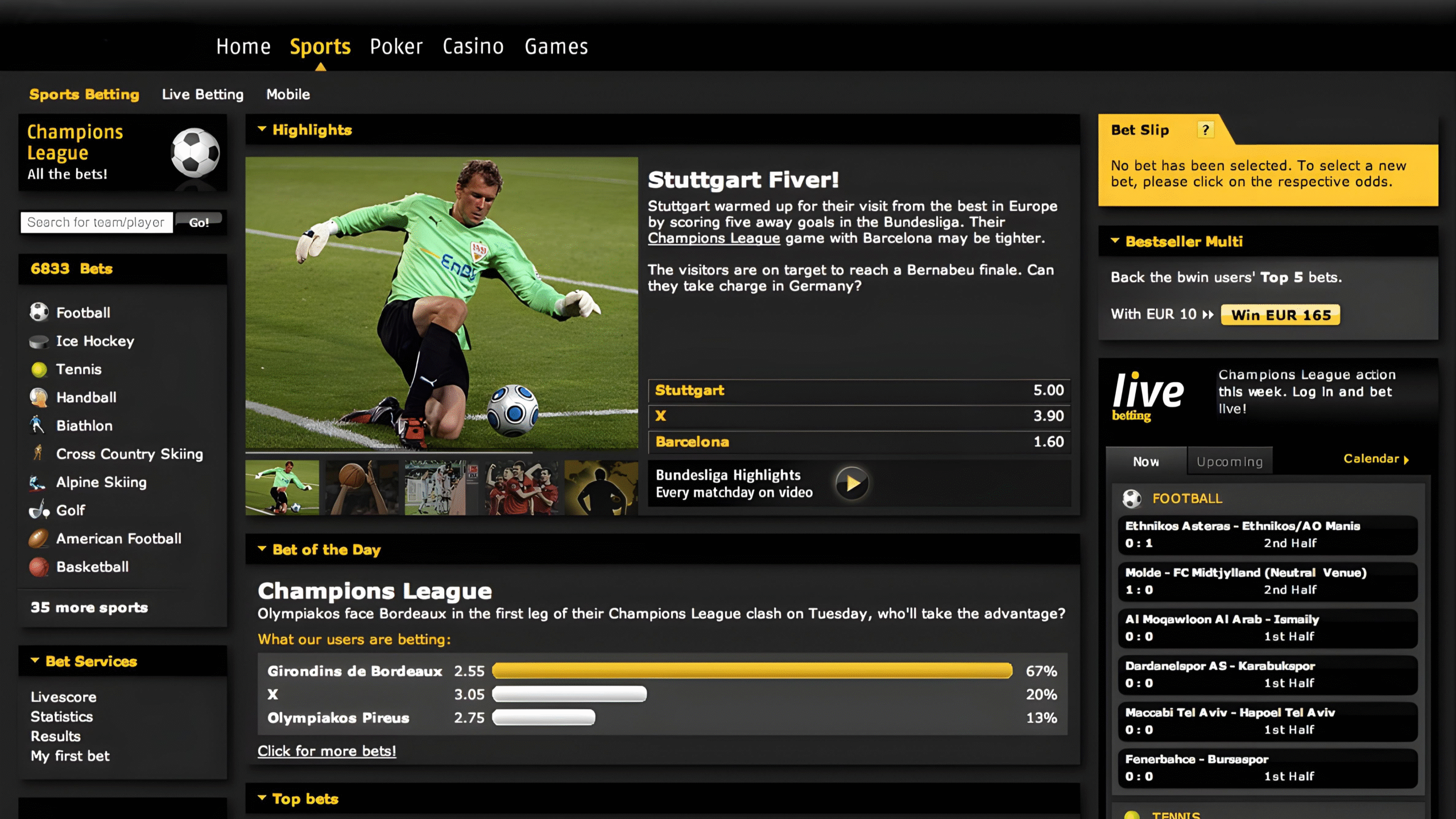If you’ve ever lost track of a bet, wondered how much you’ve actually won (or lost) over time, or just wanted to analyze your betting habits—congrats, you’re thinking like a smart bettor. Tracking your betting history isn’t just for stat nerds or pros. It’s for anyone who wants more control over their online sportsbook experience in India.
Why Should You Track Your Betting History?
Let’s start with a simple question: Would you drive without checking your fuel gauge? That’s essentially what you’re doing when you place bets without keeping track of your past activity. It might feel harmless, especially if you’re just placing a few bets here and there, but over time, the lack of clarity can become a serious problem—especially when money is involved. Without knowing where your funds are going or how much you’ve actually spent or won, you’re betting in the dark.
Tracking your betting history gives you an honest look at your profit and loss. It’s easy to feel like you’re winning—especially when that one big win sticks in your memory—but the numbers might tell a different story. A proper log helps you understand whether you’re actually making money or just cycling it back into more bets. It breaks the illusion of “I’m probably ahead” and forces you to face the truth. That kind of clarity is essential for improving your betting strategy and making smarter decisions over time.
Beyond the financials, tracking helps reveal hidden patterns in your behavior. Are you consistently better at betting on IPL matches than European football? Do you lose more money on multi-leg parlays than straight bets? This information becomes gold when refining your betting style. You can double down on your strengths, avoid repeating the same mistakes, and evolve from casual punter to strategic bettor. Think of it as coaching yourself through your own stats—just like sports teams do with performance analytics.
Lastly, record-keeping is also useful in a practical sense. In India, if you’re ever questioned about your betting earnings—say for taxation or financial disclosure purposes—having a clean, timestamped log of your betting history can save you from a lot of headaches. It also plays a vital role in responsible gambling: when you can actually see how often and how much you’re betting, it’s much easier to stay in control and avoid slipping into compulsive behavior. So really, tracking isn’t optional—it’s essential if you want to bet smarter and stay ahead of the game.
Where You’ll Find Your Betting History on Indian Sportsbooks
| Sportsbook Name | Where to Find Bet History | Time Filter Available | Export Option | Additional Notes |
| Betway India | Under “My Account” > “History” | Yes (7-day, 30-day, custom) | No | Displays settled and unsettled bets separately |
| 10CRIC | “My Bets” tab in dashboard | Yes (daily, weekly, custom) | Yes (CSV) | Offers color-coded win/loss statuses for quick overview |
| Parimatch India | Profile Menu > “Betting History” | Yes (pre-set and calendar range) | No | Easy navigation between live, past, and future bets |
| Dafabet | “Transaction History” section | Yes (30 days, 6 months) | Yes (PDF) | Includes deposit/withdrawal alongside bet summaries |
| 1xBet India | “My Account” > “Bet Slip” > “Bet History” | Yes (daily, weekly, full range) | Yes (Excel, PDF) | Includes bet ID, odds, and game result per entry |
| Bettilt | Main Menu > “Betting History” | Yes (calendar-based selection) | Yes (CSV or text format) | Good for multi-sport tracking across different markets |
| LeoVegas | Account Settings > “History” > “Sportsbook Transactions” | Yes (custom filter) | No | Combines casino and sportsbook records in one section |
| Rajabets | Profile > “Betting Reports” | Yes (date picker tool) | Yes (PDF/print-friendly) | Clean layout with game types, odds, stakes, and returns |
Types of Bets You Should Be Tracking
Not all bets are created equal. Some are straightforward, others come with complex combinations, and a few happen so quickly that they’re easy to forget. That’s exactly why tracking different types of bets is essential—each has its own behavior, risk, and reward. Here’s a breakdown of the types of bets you should be actively monitoring if you’re using Indian sportsbooks:
- Single Bets
These are the most basic type of wager you can place—a single bet on a single event. Whether it’s a cricket match outcome, a football team winning, or a tennis player covering a spread, it’s easy to log and easy to analyze. These bets give you a clean success/failure rate and are perfect for identifying where you shine. - Accumulator (Parlay) Bets
These bets combine multiple selections into one ticket. All selections must win for the bet to payout, which makes them higher risk but potentially higher reward. If you’re placing parlays often, it’s especially important to track them—this way, you can see if you’re actually coming out ahead or just chasing big wins without success. A detailed record also helps you spot whether certain legs of your parlays tend to fail more than others. - Live (In-Play) Bets
These are bets placed while the match is already underway. It’s easy to get caught up in the moment and forget half the bets you made, especially during fast-paced games like T20 cricket or football. That’s why tracking live bets is crucial—they add up quickly and often involve emotional decisions rather than logical ones. Keeping tabs helps you understand whether you’re actually profiting from impulse bets or just bleeding your bankroll. - Casino Bets (on the Same Platform)
Many Indian sportsbooks also offer casino games like Andar Bahar, Teen Patti, blackjack, and roulette. If you’re switching between sports betting and casino games, tracking becomes even more vital. Why? Because your money is moving between very different formats, and without proper tracking, it’s easy to lose sight of where you’re winning and where you’re consistently losing. - Bonus or Free Bets Usage
Many sportsbooks offer free bets, cashback, or bonus credits. You might think they don’t matter because you’re not using your own money—but they do. Tracking these lets you assess how effectively you’re using promotions and whether they’re genuinely adding value to your overall betting record or just padding your loss history with zero-risk attempts. - System Bets (like Trixie, Patent, Yankee)
Some experienced punters go beyond parlays and try system bets. These involve several selections combined into multiple bet types within one stake. They’re complex, and without tracking, you won’t have a clue if they’re helping or hurting your stats. Recording the outcomes and structure of these bets can reveal whether they’re a strategic asset or just a drain. - Prop Bets (Player or Match Specials)
Think bets like “Virat Kohli to hit a fifty” or “total corners in a football match.” These aren’t based on team wins but specific events within a game. Prop bets can be tempting, and tracking them can help you understand if they’re profitable long-term or just random punts.
Manual vs. Automated Tracking: What Works Best?
When it comes to keeping tabs on your betting history, you’re standing at a crossroads—should you go manual and build everything from scratch, or let technology do the heavy lifting? The answer depends on how much control you want and how much time you’re willing to invest. Each approach has its perks and pitfalls, and the best method often boils down to your style of betting and personality. Let’s break it down.
Manual tracking is the classic spreadsheet method—the go-to for old-school bettors who love control and customization. With a tool like Excel or Google Sheets, you can tailor everything: bet types, odds, match outcomes, even running graphs that show your profit trends. It gives you a full-picture view of your betting habits. Want to color-code wins and losses? Go for it. Need a pivot table showing which sport you’re most profitable in? You can build that, too. But the catch? It’s time-consuming. And let’s be honest, after a long betting session, it’s easy to forget to log your last few bets, which can throw off your stats.
On the flip side, automated tools are a godsend for bettors who want insights without the effort. Apps like Betslayer and Trademate Sports are designed to track bets in real-time, log everything automatically, and offer analytics that tell you if your strategy is actually working. Some even connect directly with your sportsbook accounts or accept imported CSV files from betting platforms. These tools offer push notifications, summaries, and performance breakdowns without you lifting a finger. It’s fast, efficient, and ideal if you’re placing a high volume of bets or betting across multiple sites.
The sweet spot for many bettors is actually a hybrid approach. Use automated exports from your sportsbooks—most Indian platforms allow you to download your betting history in CSV format. Then, you can plug this into your spreadsheet to do custom analysis your way. This method saves time and gives you accuracy while still offering the flexibility of manual control. Whether you’re a weekend dabbler or a serious punter, the goal is the same: get a clear view of your wins, losses, and patterns. Once you find the tracking style that matches your flow, you’ll start betting smarter—not harder.
How Long Do Indian Sportsbooks Keep Your Betting History?
| Sportsbook | History Retention Duration | Access Method | Export Option Available | Notes |
| Betway | Up to 6 months | My Account > History | No | Limited time window—download regularly. |
| 1xBet | 1 year | Account Statement > Bet History | Yes (CSV) | Great for long-term tracking. |
| 10CRIC | 90 days | Dashboard > My Bets | Yes | Short period—set reminders to export data. |
| Parimatch | Up to 1 year | Profile > Betting History | No | Viewable online but no official download. |
| Dafabet | 6 months | Transaction History | Yes (PDF) | Casino and sports bets stored separately. |
Pro Tips for Organizing Your Betting History
Organizing your betting history can significantly improve your analysis and help you spot trends, patterns, and areas where you can improve. Here’s a detailed breakdown of pro tips that will make your betting history easier to understand and more valuable:
- Categorize by Sport
Organizing your bets by sport allows you to quickly identify which types of bets are yielding the best results. Whether you bet on cricket, football, kabaddi, or any other sport, grouping them helps you measure performance by specific interest areas. This way, if you notice you’re more successful in cricket than in football, you can adjust your strategies accordingly. - Use Color Coding
Visual tools like color coding make reviewing your betting history much faster and more intuitive. For instance, you could use green for winning bets and red for losses. This simple system can help you spot winning or losing streaks quickly, making it easier to gauge your overall performance without having to dig through numbers manually. Some people even go as far as adding yellow for bets that were too close to call or for partial wins. - Use Tags
Tags are an excellent way to note why you made a specific bet. Were you betting based on intuition? Stats? Or maybe a friend’s recommendation? By tagging your bets with relevant notes, you can look back and analyze the methods that work best for you. For example, if you consistently win bets that were backed by statistics, you might decide to focus more on data-driven betting strategies. This also helps you learn from your mistakes, such as if a “gut feeling” bet didn’t pay off. - Keep Track of Bet Size and Stake
Track the size of each bet alongside the outcome. For instance, did you place a ₹500 bet and win ₹1,000, or did you wager ₹2,000 and lose? Tracking your stakes in relation to outcomes helps ensure you’re not overextending yourself, allowing you to refine your betting strategies over time. It also helps to see how much of your bankroll is at risk at any given moment, which is essential for effective bankroll management. - Review Bet Timing
Record the time of day or week when you place your bets. Are you more successful when placing bets during the IPL season or off-season? Is there a specific time of day you tend to win more bets? Understanding your betting habits and their impact on your performance can give you a competitive edge, helping you focus your efforts at times when your performance is optimal. - Regularly Update and Review Your History
The key to successful betting is reflection. Don’t just track your bets and forget about them. Regularly update your history, especially when you try new strategies, and review it to see how you’re progressing. If you’re not consistently tracking, you could miss valuable insights. Regular reviews allow you to correct any mistakes and capitalize on your strengths.







